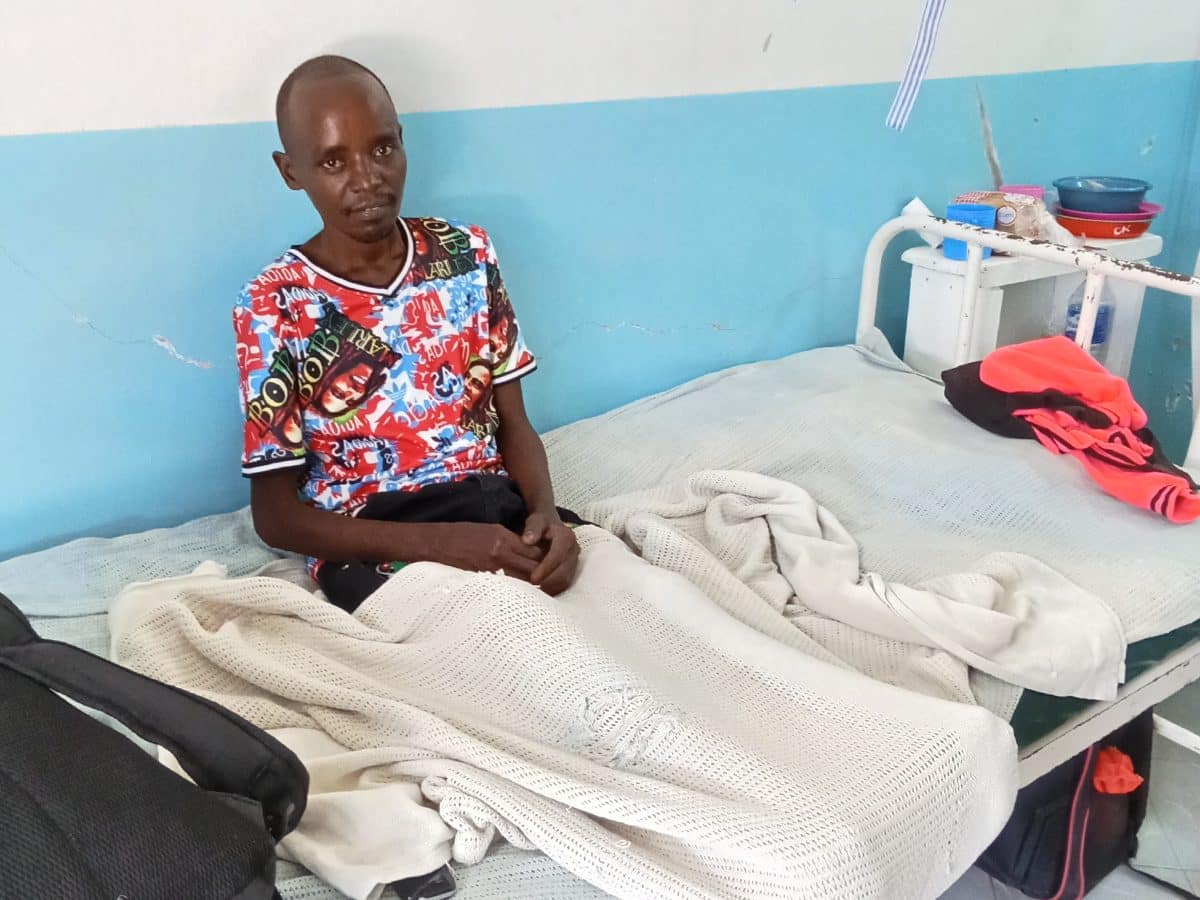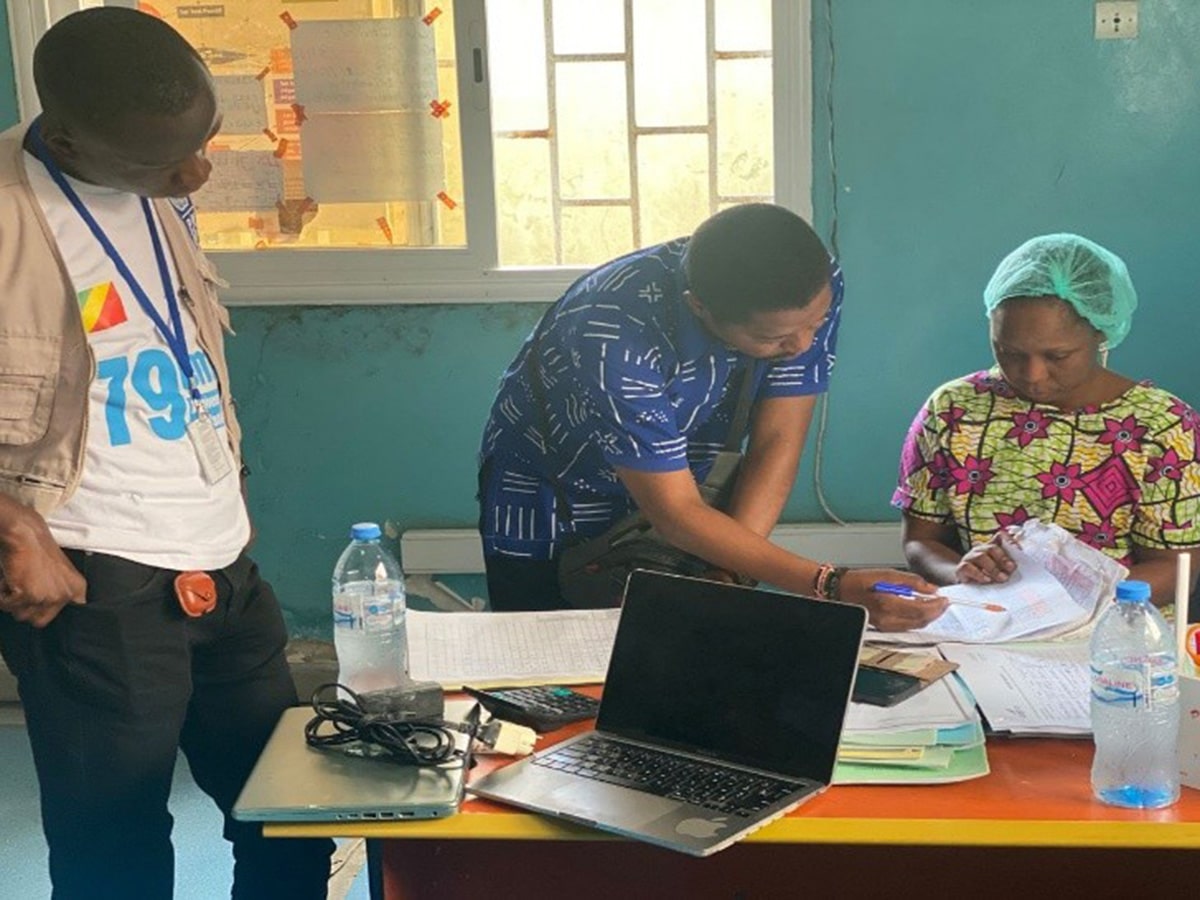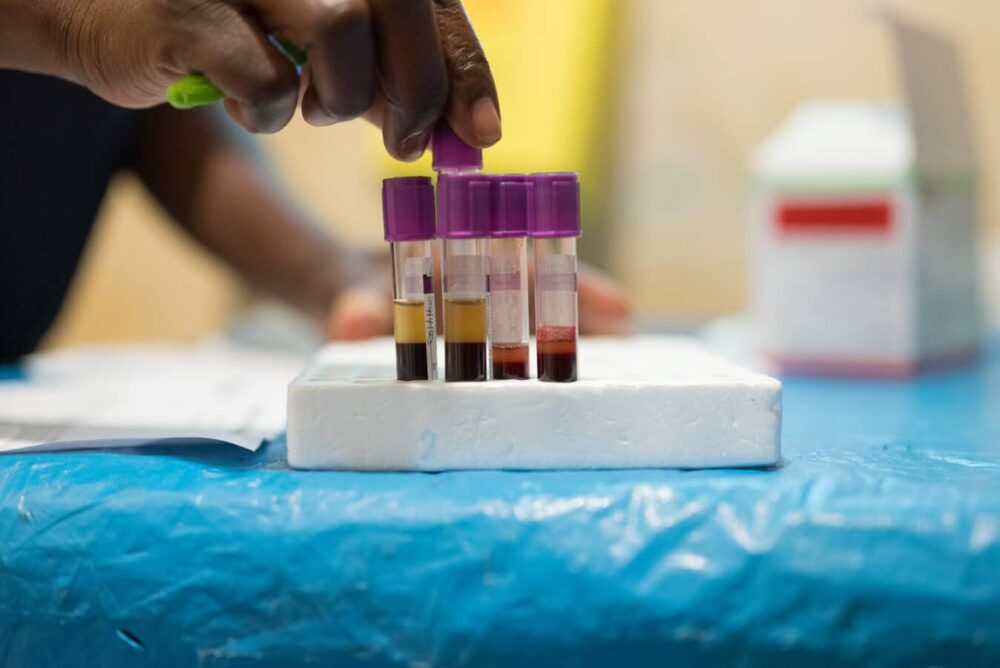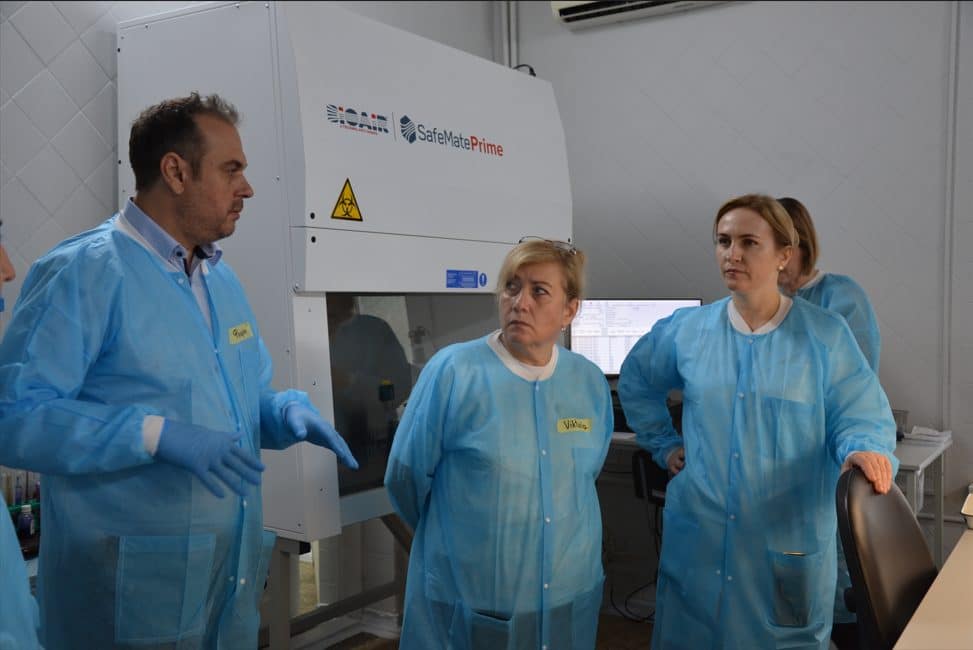Mumo’s Story
Geoffery Mumo, a 33-year-old mason, has lived in northern Kenya’s Libehia Center, which he describes as having a distant and rugged terrain, for two years. In Libehia Center, Mumo found a sense of fulfillment in his job building homes until he fell ill with a seemingly undiagnosable disease.
“Everything changed when I began feeling unwell,” he said, recounting his illness. “It started with what I thought was a simple fever. But as the days passed, the fever persisted and worsened. Along with it came relentless weakness, abdominal pain, and bouts of vomiting.”
Seeking Answers
After unsuccessfully trying to self-medicate for two weeks due to lack of confidence in the northern region’s health systems, Mumo traveled back home to Matiliku Town in Makueni County at his sister’s behest. On arrival, Mumo’s sister insisted on taking him to the Makueni County Referral Hospital, the biggest referral health facility in that region, which provides both high-quality specialists and access to general services. On June 2, 2024, medical staff admitted Mumo to begin a battery of tests to figure out what was wrong.
“I just can’t understand it,” Mumo explained to the doctors. “I have always been healthy, and now I struggle even to stand up.”
The doctors were also puzzled. After running numerous tests for common illnesses, including malaria and Hepatitis B and C, that all came back negative – and despite Mumo’s severe symptoms – fever, jaundice, and pallor – doctors were unable to give a precise diagnosis. Mumo was getting worse with a persistent high fever. He was also anemic with liver damage. With the situation getting dire, doctors made plans for a costly bone marrow aspiration for further examination, a test Mumo’s family couldn’t afford at the time.
Results – A Breakthrough Diagnosis
Mumo’s condition continued to baffle hospital staff until Mutisya Jeremiah, an ICAP in Kenya disease surveillance officer based at the Mukueni Country Referral Hospital, reviewed his case. Jeremiah enrolled Mumo in the Acute Febrile Illness Surveillance Program, a project ICAP has supported in partnership with the Kenya Ministry of Health (MOH) and county governments since 2017, with funding from the U.S. Centers for Disease Control and Prevention (CDC). This decision changed everything.
“While going through hospital records, we noticed Geoffrey’s symptoms aligned with the parameters of our ICAP surveillance project,” said Jeremiah. “We sent his samples to the CDC-supported Kenya Medical Research Institute laboratory in Nairobi for further analysis, where they confirmed that Mumo had contracted visceral leishmaniasis, also known as kala-azar.”
“This disease,” added Jeremiah, “caused by protozoan parasites transmitted by infected sandflies, was not something I ever expected to hear about in Makueni County. It’s more common in other parts of Kenya, and its presence here was unusual and alarming.”
Leishmaniasis is a neglected tropical disease (NTD) that mainly impacts vulnerable communities with limited access to health care. As with most NTDs, accurate diagnosis of leishmaniasis is challenging due to overlapping symptoms with other common illnesses. Visceral leishmaniasis is the most severe form of the disease and affects internal organs such as the spleen, liver, and bone marrow. However, through early and accurate diagnosis facilitated by ICAP’s surveillance program – in collaboration with the participating county health departments and the MOH – there is an opportunity for timely treatment and improved outcomes for affected individuals.
Treatment and Hope
After the diagnosis, the Makueni County Referral Hospital quickly facilitated Mumo’s access to the appropriate treatment, and he has made remarkable improvements since.
“This surveillance saved me from the extreme pain of ill-health and the prolonged agony of unknown diagnosis. Knowing what was wrong and having a treatment plan felt like a huge weight lifted off my shoulders,” said Mumo.
Jeremiah expressed similar sentiments: “We’re glad to have spared the family the pain of not knowing and the financial burden of further tests.”
Reflecting on the Journey
As Mumo recovers and plans to return to work in northern Kenya, he has a newfound appreciation for health and the importance of accessible medical care.
ICAP in Kenya will continue to support the implementation of acute febrile illness surveillance in various county referral facilities, including Makueni County Referral Hospital. This surveillance aims to identify causes of fever for early response to minimize morbidity and mortality. The pathogens include common causes of fever, like malaria, and less common causes, including NTDs, like leishmaniasis.
About ICAP
A major global health organization that has been improving public health in countries around the world for two decades, ICAP works to transform the health of populations through innovation, science, and global collaboration. Based at Columbia Mailman School of Public Health, ICAP has projects in more than 40 countries, working side-by-side with ministries of health and local governmental, non-governmental, academic, and community partners to confront some of the world’s greatest health challenges. Through evidence-informed programs, meaningful research, tailored technical assistance, effective training and education programs, and rigorous surveillance to measure and evaluate the impact of public health interventions, ICAP aims to realize a global vision of healthy people, empowered communities, and thriving societies. Online at icap.columbia.edu








